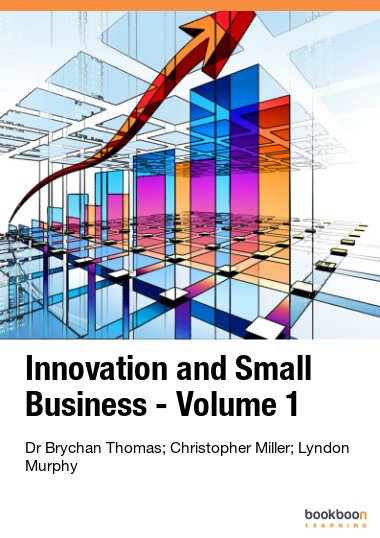This volume considers innovation and small business with particular reference to the innovation process. Here an approach appropriate to small businesses is taken by considering the distinction between invention and innovation as well as research and development in the context of small firms. In addition, technology diffusion, clusters and knowledge flows, higher education spin-offs, global start-ups and innovation performance indicators are also considered with particular reference to the small business sector.

In modern technological society small businesses are expected to have an innovative role in the emerging knowledge economy, especially at an international level (EC, 2005; BERR, 2008). In fact the effective use of technological innovation is considered to be a prerequisite for small business survival (Packham, 2002; Packham et al, 2005). It has long been recognised that the small business sector is important for economic growth and it has been noted that there is a need for an international focus on small businesses having access to international markets (OECD, 2005). Within this context it has been acknowledged that small business development programmes and assistance should enable them to take advantage of innovative global technologies (OECD, 2005). Although significant opportunities are presented to small businesses through the adoption of new technologies there needs to be awareness to the barriers of implementation and this has led researchers to focus on adoption factors (Parasuraman, 2000). Indeed, there has been little success linking the determinants of adoption in small businesses with expected outcomes such as innovation, apart from specialised research and development (R&D) intense sectors (Thomas and Simmons, 2010).
Small businesses with an above average absorptive capacity tend to exhibit experience, knowledge, a skills base, knowledge creation and sharing processes (Cohen and Levinthal, 1990; Zahra and George, 2002; Gray, 2006). Their effective use of networking and an optimal use of technological innovation are the focus of this first volume. It is therefore hoped that this volume will provide a greater understanding of these innovation processes for small businesses.
- Introduction
- Invention, Innovation and Small Business
- Research and Development and the Small Firm
- Technology Diffusion
- Clusters and Knowledge Flows
- Higher Education Spin-offs
- Global Start-ups and business development
- Innovation Performance Indicators
- Conclusions
- References
- Chapter 1: Introduction
- Chapter 2: Invention, Innovation and Small Business
- Chapter 3: Research and Development and the Small Firm
- Chapter 4: Technology Diffusion
- Chapter 5: Clusters and Knowledge Flows
- Chapter 6: Higher Education Spin-offs
- Chapter 7: Global Start-ups and business development
- Chapter 8: Innovation Performance Indicators
- Chapter 9: Conclusions
- About the Contributors
- Index